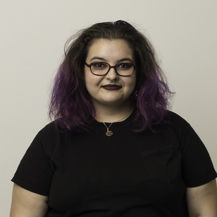Intro to intersectionality: All women deserve our attention

Intro to intersectionality: All women deserve our attention
October 30, 2017
A teenage girl who migrated to the U.S. from Central America has finally been allowed her right to an abortion, and her case exemplifies the need to make feminism intersectional.
The 17-year-old girl, referred to as Jane Doe in court documents to protect her identity, was detained by the U.S. government in Texas while trying to cross the border illegally in late September.
Soon after her detainment, she learned she was pregnant and began seeking an abortion. Because of a Trump administration policy against facilitating abortions for detained minors, the girl and her lawyers were forced to fight the government for her bodily autonomy in court.
A U.S. appeals court decided against allowing Jane Doe to get an abortion Oct. 20 until a sponsor who could claim custody of her could be found. At the time of the decision, the girl was already 15 weeks pregnant and nearing another legal obstacle: A Texas law that, except in special circumstances, bans most abortions after 20 weeks.
After the girl’s lawyers pushed for judges to hear the case again, the D.C. Circuit Court of Appeals overturned the initial ruling Oct. 24. The girl’s lawyers are now working for an order to allow her to have an abortion within days, or else the Texas abortion restriction will force her to travel hundreds of miles to an out-of-state abortion provider.
The latest development in the court case should bring relief. A young woman should never have to bear the burden of a child she is not ready to carry, but it was a long journey for the law to stand on the side of justice. Jane Doe’s case is a single story in a larger narrative many immigrant women live.
Like many others, the girl risked her life to come to the U.S. to escape an abusive household, according to an Oct. 20 Washington Post article on the initial court decision. Instead of finding safety, she continues to face the dangerous intersection of sexism and xenophobia. In response to such societal evil, and in an effort to resist unjust government policies, we must cross those same intersections among race, immigration status and gender to uplift and empower all women.
In mainstream feminism, the idea of intersectionality is often lost. Many protest against the gender-based wage gap, for example, citing that women earn 78 cents for every dollar a man earns. Generalizing the wage gap in this way subtly erases the realities of women of color. Black women and Hispanic women earn 65 percent and 58 percent, respectively, as much as white men, compared to white women who earn 82 percent, according to a July 1, 2016, survey by the Pew Research Center.
Recognizing that many will not experience womanhood the same way because of factors like race or immigration status is important in fighting for empowerment for all women.
In a 1981 presentation, poet, activist and feminist leader Audre Lorde summarized the importance of intersectionality in just one sentence: “I am not free while any woman is unfree, even when her shackles are very different from my own.”







